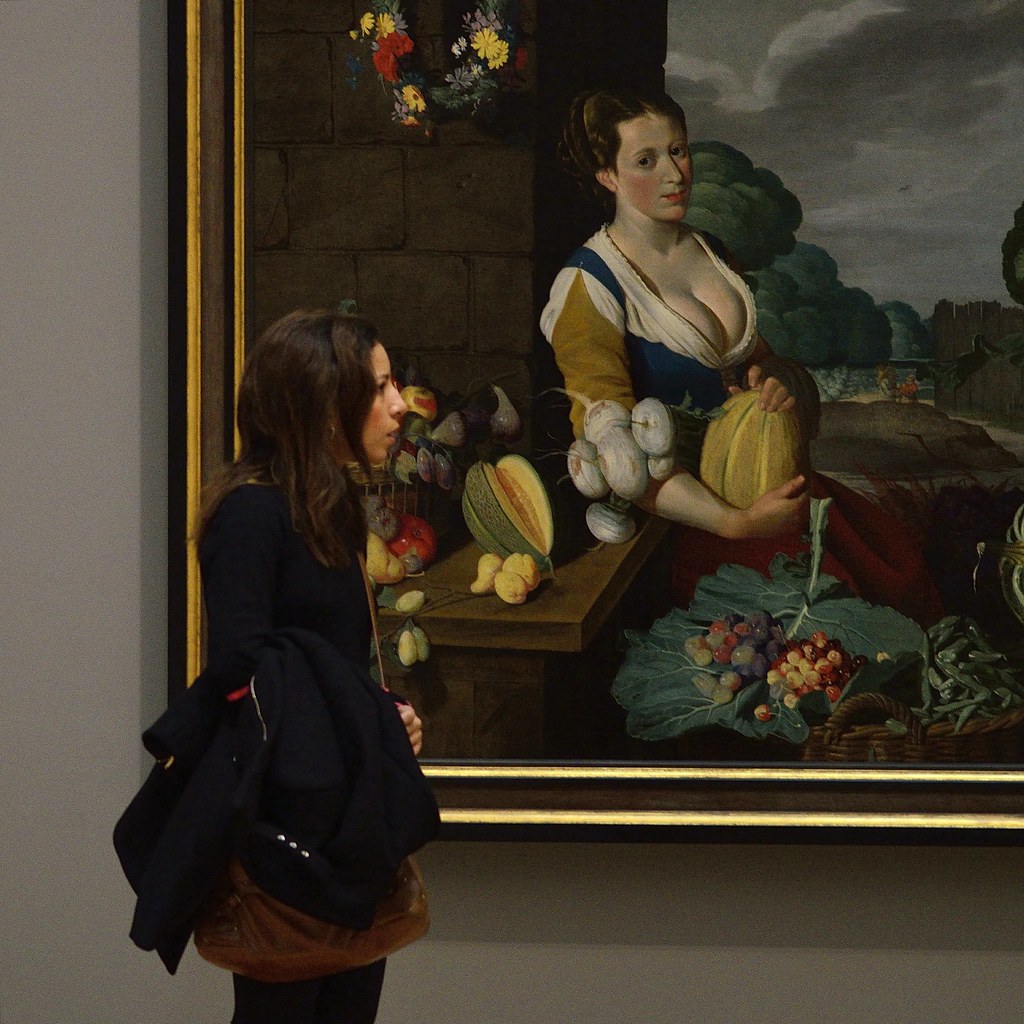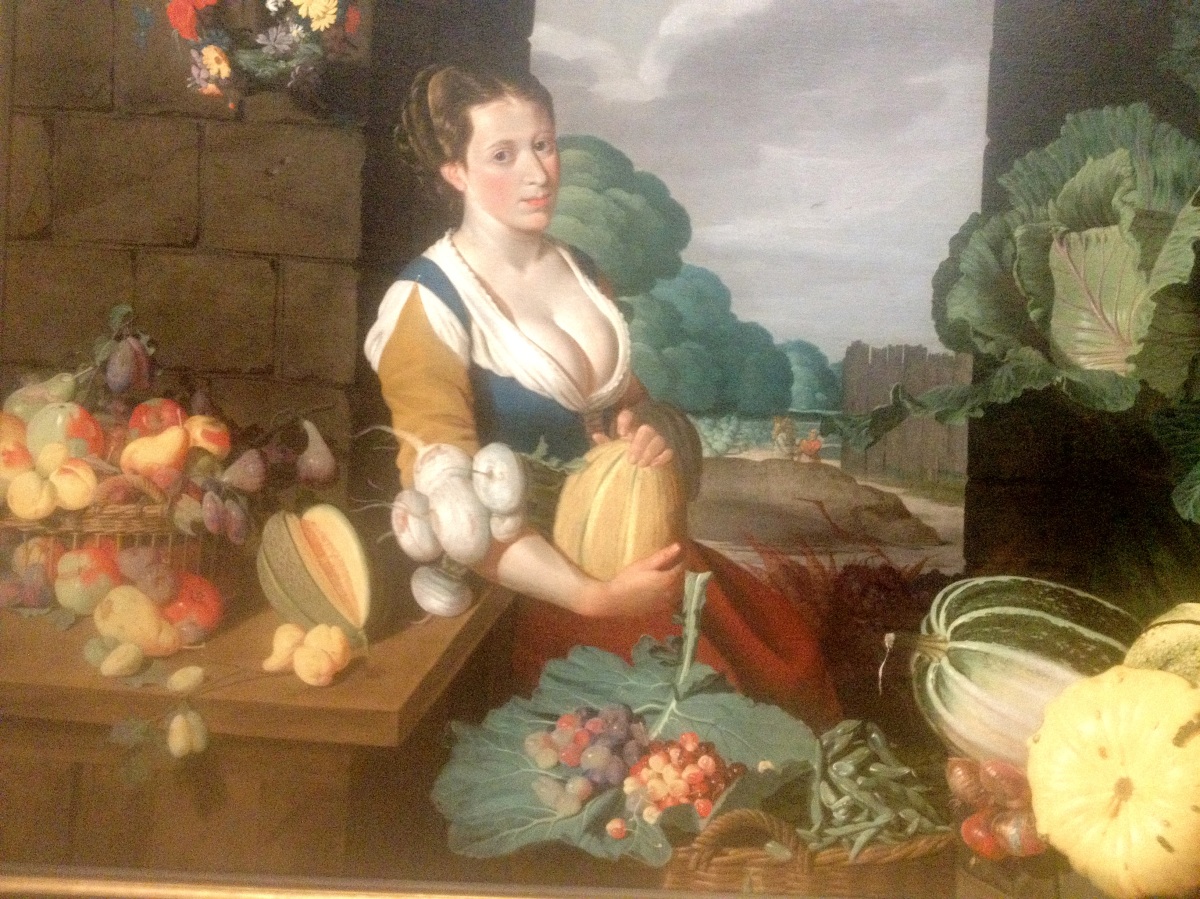An inventory of 1659 connected to the will of the artist's wife lists 'Ten Great peeces in Wainscote of fish and fowle &c done by S:r Nath: Bacon' (quoted in Gervase Jackson-Stops, ed., The Treasure Houses of Britain, exhibition catalogue, National Gallery of Art, Washington, DC 1985, p.140). Two other 'Cookmaid' pictures are known to exist: Cookmaid with Still Life of Game and Cookmaid with Still Life of Birds, both in the possession of the artist's descendants. The Tate's work is possibly part of this group. Such groups were often intended to depict the four seasons or the twelve months of the year. In the case of this piece, however, although every item represented in the painting was grown in England at the time, not all would have been in season simultaneously. Bacon, according to a letter dated 19 June [1626], was growing melons at his estate in East Anglia, and he was known to have a keen interest in horticulture. The subject would most likely have had erotic connotations. The abundance of ripe melons surrounding the cookmaid echo her voluptuous cleavage.
Painted by Nathaniel Bacon in the 1620s. It hangs in the Tate gallery in London. I make no apology for this early picture as it is such a great painting and shows what is thought to be common clothing still current in the 1640s. The cookmaid is dressed in a smock, edged with simple lace around the neck, with what looks like a petticoat in the style that has a low cut upper body section either sewn or laced in to the skirts below. She also has some fabric sleeves seemingly pinned over the sleeves of her linen smock, and very smartly dressed hair, which would normally be the preserve of a higher status woman. I wonder if this is a real cook maid smartened up, or someone playing a role. Note that if she was going out, rather than sitting coquettishly by the window, she would wear a waistcoat to hide her “modesty”.
The vegetables that appear in the picture, although they would never be all in season at the same time, (making this still life somewhat of a fantasy picture) are also worth a look. Amongst the selection (Bacon was also a keen gardener, or maybe more properly horticulturalist) are some rather modern looking cabbages, (or coleworts as they were also known), artichokes,, some nice purple carrots (the orange variety is a modern cultivar), parsnips, turnips, onions, marrows, pumpkins, apples, pears, plums and figs. I’m sure I’ve missed some, there are so many different types.


Cookmaids



http://www.the-athenaeum.org/art/detail.php?ID=138751http://www.tate.org.uk/art/artworks/bacon-cookmaid-with-still-life-of-vegetables-and-fruit-t06995/text-summary
http://www.tate.org.uk/art/artworks/bacon-cookmaid-with-still-life-of-vegetables-and-fruit-t06995/text-catalogue-entry
https://the1642goodwyfe.wordpress.com/2012/12/18/cookmaid-with-still-life-of-vegetables/
http://bjws.blogspot.com.ar/2013/10/preparing-harvest-1600s-food-cooking-in.html


No hay comentarios.:
Publicar un comentario